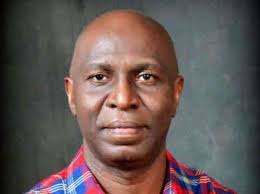You can understand a society by the quality of its protests. When you looked at the talakawa anger in Kano, you could muse on the paradox of boys who could not read and write, but stormed a library. Like rodents in a cathedral, they were not craving a sacrament.
They did not look for a book by Che Guevera, or Amilcar Cabral or even Lenin. In fact, they saw everything but books. It was Boko Haram on display. They forbade the books but did violence to them by ignoring them. To touch is to read. But the books had a great escape: a bonfire. That would have been a bigger violence. Thank God for book mercies.
Their eyes played host to more immediate exigencies: material temptations, like chairs, tables, toilet accessories, computers – they can’t operate them but they can sell them. So, you can call it an illiterate uprising. It is in this way we can put the bubble in perspective.
Reading would have chastened them like the drunk in Fitzgerald’s The Great Gatsby who turned sober inside a library. The Bible says, much reading is the weariness of the flesh. These boys were not weary. They do not understand anything about the value of the naira against the dollar because they never buy or sell. They carry bowls all day, and it does not matter to them what the value of naira is or the pangs of inflation. When they thrust their bowls, they get their food. It was so yesterday; it was so the day after their street riot and it was so 50 years ago. The hunger they know today is the same hunger that almajiris knew two or three generations before them. Why did they not go to the streets to protest hunger? They are immune to the economy. They are only beholden to those who feed them. Those who they wake up to and in whose shelters they pass the night. They don’t buy food in the market. They don’t pay school fees or rent or live with their parents. They don’t go on vacation or worry about fashion or their threadbare clothing.
So, when they carry flags, you wonder how a boy who has no money and who has not heard of the name Putin would hoist his flag. They only answer to those who feed them. Feeding is their outlet to life, and the man who shuts the door and opens it is their feeding bottle. So, when they call for military coup, it is not they that speak but their sponsors. You began to understand this when we heard from two key figures in the north. The first is the Kaduna State Governor, Uba Sani, who made the point that the boys did not act alone, but they were marionettes of predators in high places. He, an activist, invoked his familiar rhetoric as a man who has fought them in the past.
The other fellow is the Bauchi State Governor, Bala Mohammed. He addressed protesters as an opportunity to put the world on notice that he wants to run for President in 2027. But the man attacked the President for his wrong policies. What wrong policy? The removal of oil subsidy? This man, Bala Mohammed, is on record in videos circulating on how he condemned the oil subsidy and berated former President Buhari for not removing it outright. He said he was in the committee that x-rayed the hemorrhage of a policy that leeched the economy. He even revealed that one of the beneficiaries had asked the President to stop it because he was tired of cheating the country. So, why is he now complaining?
Bala Mohammed is just a pharisee and irresponsible governor who has had his monthly revenue balloon in the past year. If the crowd were literate, they would have stormed him out of his cocky podium.
Former House Speaker Yakubu Dogara lashed back, asking him to itemise what he had done for his state in his over five years of stewardship.
We can glean a perversity of malice from men like Mohammed that the boys were on the streets on behalf of men who have been shut out of their entitled decadence in the centre. They are at war by proxy, the boys being their fronts in this fog of war over the spoils of the country.
Somebody up north told me that those fighting are also in cahoots with disgruntled men in the south who are still embittered by an election loss. They have lots of money, he told me, and they are richer than government.
We should not see the northern imbroglio as just a hunger protest. It is not the almajiri that are hungry. It is not about those who are hungry but about those who are angry. They are angry not because they can’t eat but because they can’t steal and eat alone anymore.
So, those who are theorizing about IMF policies and about the strangulation of policy should understand that it is about the frustration of a primitive class that has seen its privileges of rapine and false splendour snatched from their palaces. The context of IMF policies has been misdiagnosed by many analysts in historical errancy and this essayist will address it in due course as it pertains to Tinubu’s policies. But be it known that these so-called protests, especially in the north, are protests but not by those who are shouting. The technicolour of marches with anger on the streets is an optical illusion. The real protesters did not cry, did not walk, were not maimed or injured and did not die. Nor did they hoist flags or signs. They were in their luxury ambience, lush in their plush palaces.
It is a paradox that the same forces hijacked the protests from those who wanted to turn it into a “righteous” matter. Righteous in the pharisaic sense. These disgruntled big men instrumentalised boys of rage. The others became spectators in their own game. So, we can say pharisee beat pharisee in a game of phonies. Nonetheless, we know that they are exploiting the pain in the land but not because they love the masses. They are like what Jesus told Judas who urged the ornament be for the poor and should not be on the Lord’s body.
The great thing that can come out of this is for the President to tap an elixir out of this disarray. He may recourse to the line of the Poet Homer: “We can give the enemy glory or win it for ourselves.”
 Hottestgistnaija.com
Hottestgistnaija.com





